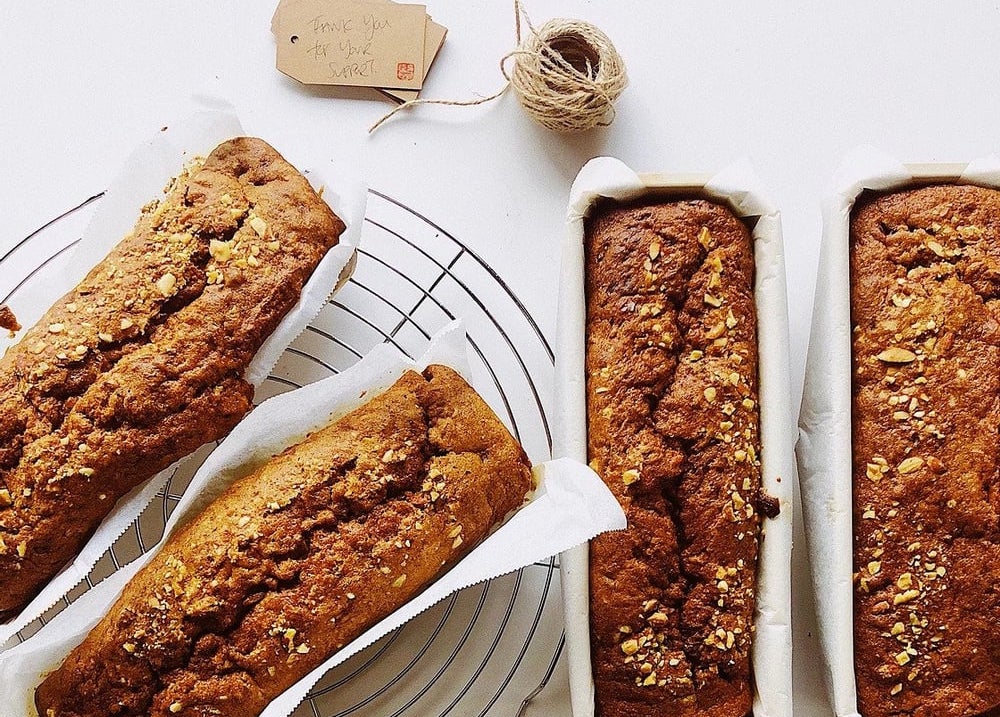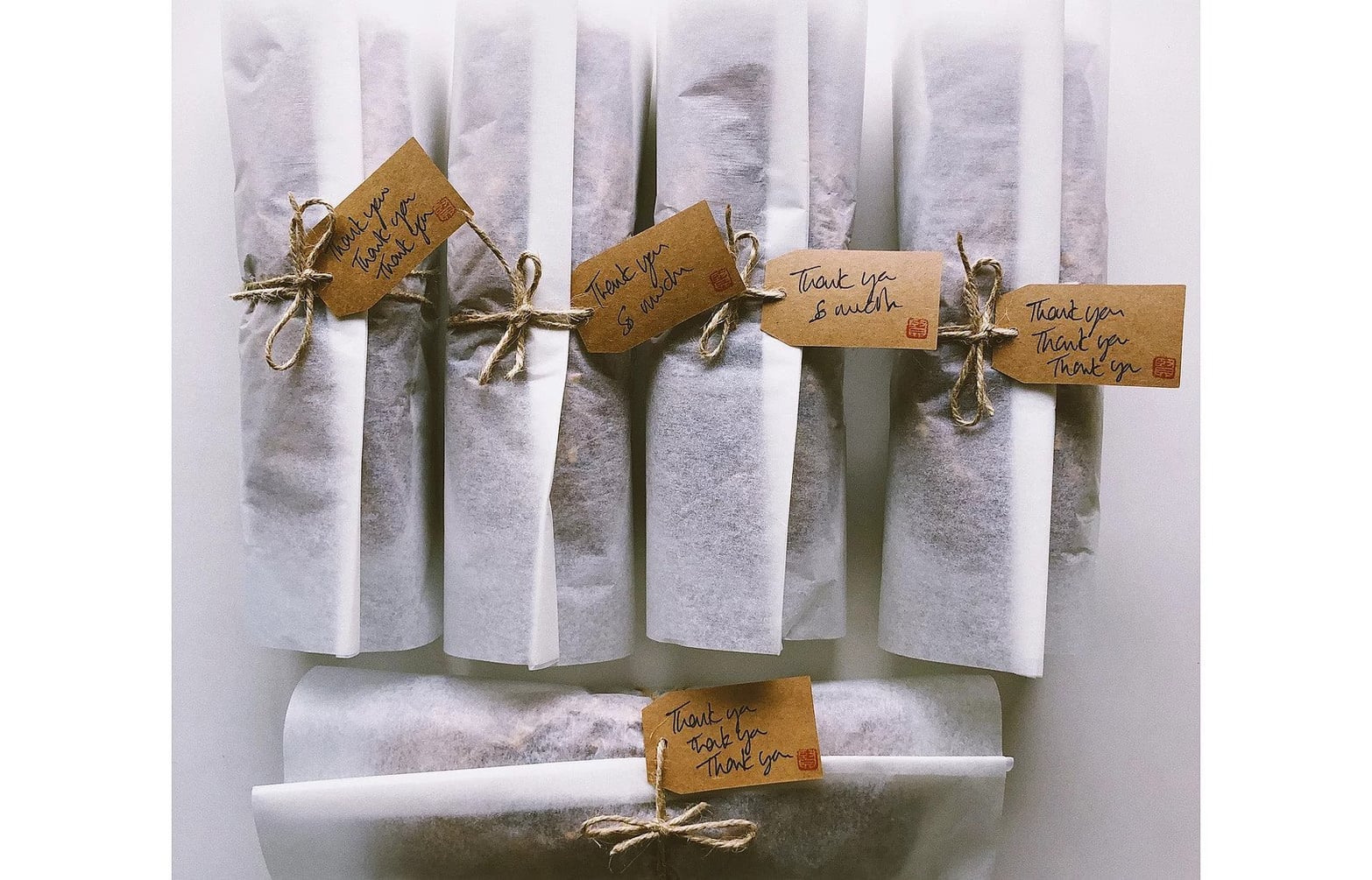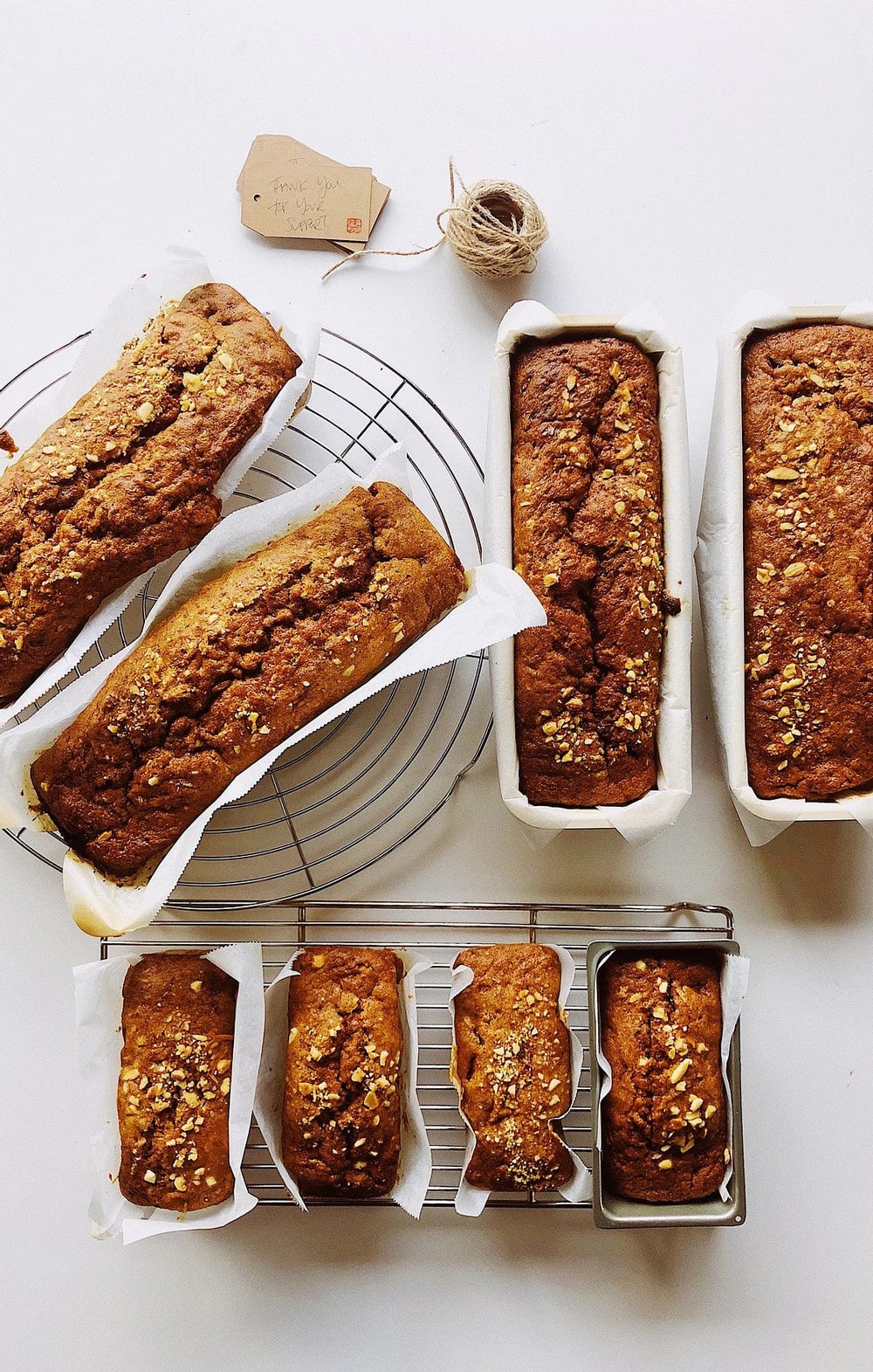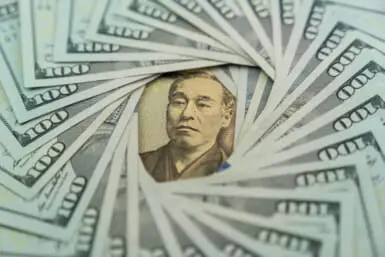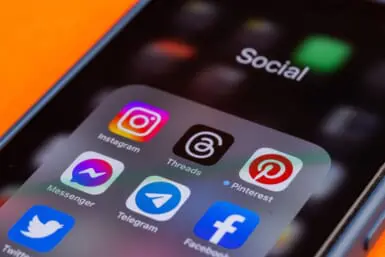Fresh from a run with his dog Hazy, Justin Mackee is now seated with a coffee as he picks at his egg sandwich. It’s been about four months since I last saw him and his beautiful chocolate-colored labradoodle. Although she’s doubled in size, you can still sense her puppy-at-heart demeanor. Hazy is the latest addition to the Let Tokyo Eat Cake crew, a Tokyo-based cake delivery service in which all profits go towards Second Harvest Japan and local children’s cafés. A year has now passed since this one-man, one-dog initiative began. In that time Mackee has baked and delivered over 900 cakes while raising over ¥1.3 million.
View this post on Instagram
1. Let Tokyo Eat Cake made headlines around the world last year. How has it been going thus far in 2021?
It’s actually been really good. I’m sad that we’re all back in a state of emergency and that the number of Covid-19 cases in Japan is not looking good, but given what has happened in the last year, I was able to end 2020 with a lot of positivity. I’ve had some additional work come in through my day job in risk management which has made me more comfortable about pursuing other food projects, including Let Tokyo Eat Cake.
We just hit our one-year anniversary and I’ve been looking back at the journey thus far. I made my very first delivery back in April 2020 and at the time, I hoped to sell 30 cakes to my friends. 30 soon turned into 50 which kept me busy and staying positive for a month. That number then doubled to 100. From there it was almost a steady constant for the next six months. It reached the point where I was having an extensive backlog of orders. I didn’t anticipate any of that. I’m just very thankful for all of the support the project has received.
Things have slowed down quite a bit recently. This has enabled me to manage my time better and to regain focus on my job in consulting. There have been times where I thought Let Tokyo Eat Cake might peter out. That’s something I’ve been feeling very bittersweet about. I would certainly be sad for this to end, but everything has a natural life cycle. Whatever happens, I will still do my weekly delivery to the children’s cafés.
2. Can you tell us about the charities you work with and how you came to support them?
The idea was originally to raise money for people who are struggling financially. That could be as a result of the coronavirus or otherwise. Second Harvest Japan was the ideal charity for me because they work with a variety of causes such as welfare agencies, orphanages and women’s shelters. All of the profits from Let Tokyo Eat Cake sales go directly to them. Along the way, I was introduced to two children’s cafés: Kuromon Café in Shinagawa and Dan Dan Café in Kamata. Pre-Covid, these were spaces that children could come to receive a healthy meal for just ¥100. Sometimes they didn’t even need money. At the moment they cannot house a lot of children in a confined space. That means they are mostly operating as a takeaway bento service.
I was blown away by their effort and impact they are having. It inspired me seeing local businesses and women volunteers in the area come together to nurture the disadvantaged amongst them. I decided to make a commitment to deliver cakes to both of the cafés regularly. Once a week, every child receives a slice of Let Tokyo Eat Cake in their bento boxes. Several supporters of the Let Tokyo Eat Cake project have donated their time and supplies to help the cafés. It’s been amazing to see the positive connections emerging from this simple project.
3. How did you get into baking and what was your original cake recipe?
Growing up, I was surrounded by sweets as my mother enjoyed baking. She made desserts like banana bread and Dutch apple pie. My baking journey started in my 20s when I began my first consulting business in London. As a freelancer, keeping the client happy is key to retaining work. It wasn’t just about the boss at the top of the organization but everyone within it. From interacting with client teams, I began to appreciate how much tea and cakes dominated the British working environment.
Deciding that it couldn’t hurt my client relationship to give them something tasty, I started bringing what I baked at home to their offices. At first it was just on the odd occasion. I remember finding a banana cake recipe online that I liked. I would tweak it from time to time, trying to make it healthier. Eventually I started adding carrot to make it like a combined banana-carrot cake. I then added other things such as dates and nuts. The recipe has evolved over the years but the best amendment was to add dried figs. It’s really given the cake a beautiful texture.
4. After baking over 900 cakes in the last twelve months, do you have any baking tips to share?
Baking can seem really daunting because of its precise nature. This is why people tend to stick to basic recipes. It’s possible to make incremental changes once you have a better understanding of where you can adjust things. I always tell people to not be afraid to reduce the sweetness. It’s incredible how much sugar there is in a standard cake recipe.
The oven I’m using is a Hitachi MRO-RV 2000 that I’ve had for over 7 years. I used it regularly prior to Let Tokyo Eat Cake and I still use it for roasting and heating my regular food. Since I started this baking project, I’ve had to put it to work at least twice a day every day, for the last year. It’s a true workhorse and I’m really amazed at how it’s still going. In the same time frame, I’ve gone through four hand mixers.
View this post on Instagram
5. Do you have any memorable delivery stories to share?
Being able to do something as small as delivering cakes to friends or friends of friends has been very meaningful to me. But even the moments of interaction with strangers have left me feeling touched. I once had to deliver in the pouring rain to a Japanese family living near Futako-Tamagawa. I had no connection to them but arrived absolutely soaked through. The 5-year old daughter of the family gave me a hand-written card and a ziplock bag filled with Japanese sweets. This act of kindness definitely brought tears to my eyes. I still use her hand-illustrated ziplock bag when collecting donations.
People in general have been really generous to me and to the cause. Some of the gifts I’ve received so far have included meat pies, craft beer and a beautiful handmade kitchen knife. As I’ve never been someone who’s good at accepting presents or the help of others, I’ve learned through all of this how important it is to be willing to receive help from others
6. In the ‘A Year in Baking’ post on your website, you talked about how Let Tokyo Eat Cake started off as an outlet to help stave off the vicious cycle of negativity that was impacting your mental health. Can you share with us how you felt at the time?
Everything happened at once. The biggest challenge was the sudden end to my last relationship. The person who I was living with, who I had cared about the most and was hoping to be engaged with, was no longer. On top of that, the global pandemic meant that I wasn’t able to visit my family. My professional work started to dry up, leaving me with a lot of alone time with my own thoughts. The whole world felt like it was falling apart. I worried so much while wishing I could do something to help. But I was just on my own in my apartment.
Over the course of my life, I’ve had three major bouts of depression where I’ve struggled. Some of it was closely tied to stress and overworking. Other times, it was related to physical accidents. You’d think experience would make it easier to deal with these things, but that isn’t always the case. I’ve finally learned to be better in how I respond to life’s challenges. I understand the kind of responses that can make my symptoms worse.
I’ve never hidden my experience with mental health. Depression is something I’ve learned a lot about. I’ve been able to accept it as part of who I am. Putting it in an article was an important step. There are still many people, including friends, who struggle to understand the mental health challenges people face. The stigma of mental illness and our inability to discuss these matters with others exacerbates the situation for those suffering. I believe being transparent is important for us to all to progress and normalize conversations about mental health, both in our private and professional lives.
7. In your opinion, how has the pandemic affected communities in need (such as Second Harvest) as well as people who suffer from mental health conditions?
I’ve met a lot of people while delivering cakes. The interactions are usually quite brief but there have been a few times where I’ve stopped to have longer conversations. I’m aware that this is a very challenging time for them. If you’re someone who’s had depression, you can often see the tell-tale signs of their mental health struggles. It might be something in their voice, something they say or the way they’re communicating with me on Instagram.
I’ve been fortunate enough to have found a great therapist here in Tokyo. It’s something I struggled with previously due to being on the road internationally for more than 6 months out of a year. Having established my own risk management business in Japan and as a result of the work I’ve done to maintain some balance in my life, I can now proactively work on my mental resilience. For those who are looking for English and foreign language resources, I recommend searching on International Mental Health Professionals Japan. It’s a database of mental health professionals who are currently accepting new clients. This is something I’ve shared with some of the people I’ve met through Let Tokyo Eat Cake. I hope it helps someone reading this as well.
There’s been a huge mental health crisis in Japan as there has been all over the world. I hope there’s adequate understanding and support provided for all of those people.
8. Has running Let Tokyo Eat Cake changed your perspective on life, work and community in Japan?
I’m half-Japanese, half-British and have always felt that I am equally both of these identities. Appearance-wise I look much more foreign here and that understandably leads to most people assuming I’m not Japanese. What’s been interesting on this journey is the response I’ve gotten from Japanese people who’ve either bought cakes or received them. They’re so positive but often remark about how happy and reassured they feel that there is a ‘foreigner’ leading this initiative. It’s simply an expression of gratitude because they see it as a very practical project. This may be small but it is directly impacting a specific community in need.
I now feel more connected to Japan, which is what I’ve been wanting for a long time. Prior to Let Tokyo Eat Cake, my life here was dominated by my professional career. I enjoy my day job but problem-solving for large multinationals doesn’t always lend itself to building personal connections outside of the workplace. Delivering cakes during a pandemic has. I’ve been able to get in touch with a lot of like-minded people.
View this post on Instagram
9. What advice would you give to anyone wanting to start their own charity initiative?
Just start and do it. There will always be roadblocks and setbacks but if you’re determined to help others and have good intentions, you’ll be able to overcome most things. It’s a cliched concept in entrepreneurship, but failing fast is a great mindset to have. Passion is also important. I often think about a separate project I’ve been working on for years in my professional career. It’s taken me this long to put in the time to develop it but I’ve been stuck in the weeds of overthinking things and struggled to motivate myself. In contrast, Let Tokyo Eat Cake sprung out on its own. My desire to create something positive and try to deliver joy through food has been a much more powerful driving force. That’s another red flag. If you’re finding it hard to commit to something, it might not be the right thing for you.
10. What’s next for Let Tokyo Eat Cake?
I’ve been working with Grace Lee to develop a tea towel that will be the first Let Tokyo Eat Cake piece of merchandise. It’s been a really wonderful project as we’re collaborating with a lot of the kids from the children’s cafés to include their own personal illustrations in the piece. While it has been a bit challenging trying to find the right tea towel and manufacturer to print something that has the quality we require, I’m excited to share this once it has been confirmed.
It’s part of a wider strategy to scale the impact of Let Tokyo Eat Cake. I’m really limited by how many cakes I can bake and deliver. Just delivering 2-3 cakes a day can mean at least 2.5 hours on my scooter. A non-perishable item will also enable me to send it outside of Tokyo so more people can get involved.
My hope is to also start raising money for the children’s cafés. There has definitely been an increase in the number of people who are relying on these services. More and more low-income families and single parents are impacted by the pandemic. If there are people out there with means to any financial assistance that would benefit these places, that would be much appreciated.
Learn more on how you can support Let Tokyo Eat Cake here.

